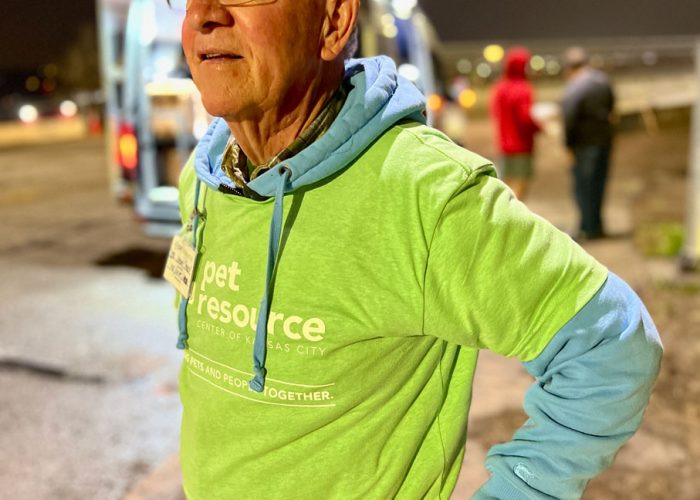Having friends is important; this is no secret. But almost just as important is remembering that you have friends, making time for them. They bring things to your life: a different perspective, diverse interests, different skills. And you bring those things to their lives too.
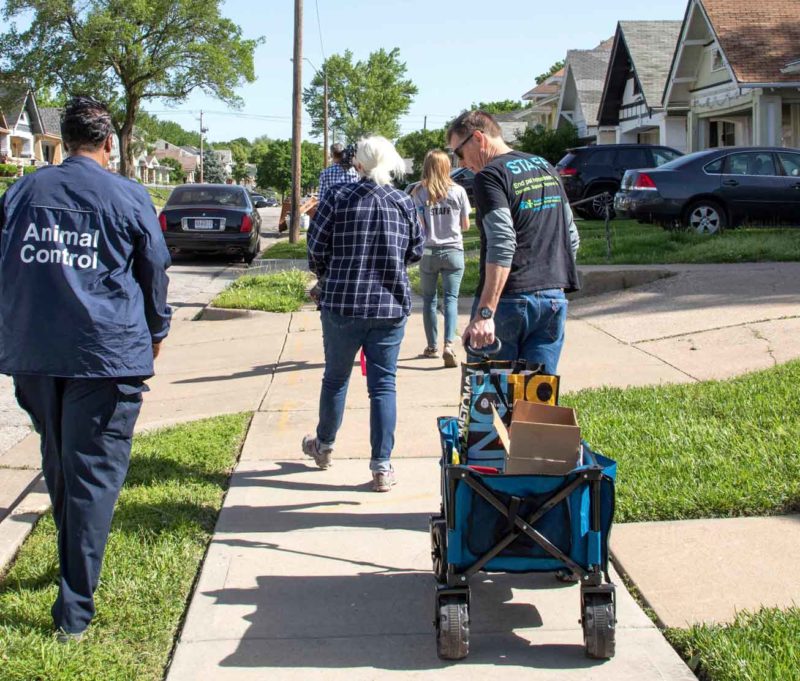
PRCKC had a chance to remember that this week as we went out into a nearby community with our friends from Wayside Waifs and KCMO Animal Control. Wayside is one of our community partners; they’re a wonderful shelter and caring people that we work with when we come across a rescue situation, among other things. And animal control works with us all the time, referring folks they come across in the field to us so we can help them, rather than giving them a ticket they can’t afford to pay because of a lack of resources that they can’t afford to buy.
Why were we canvassing? Well, first of all, the neighborhood we were in gets a higher amount of animal control calls than other parts of the city. And when you’re in it, it’s easy to see why. It’s an underserved community: crumbling infrastructure, trash dumping, rental properties that aren’t maintained. These folks don’t have the resources that other communities have, so you end up with overgrown areas where feral cats live, and loose pets running around because folks don’t always have the money for fencing or a proper tie-out, and people that have taken in pets out of the kindness of their hearts, but don’t have experience with animals.
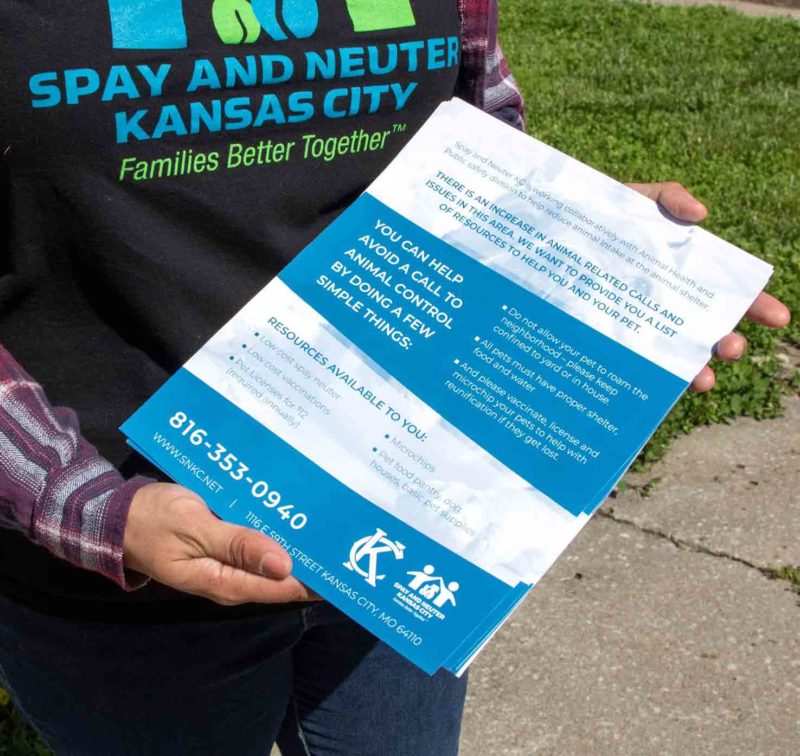
And second of all, we canvass because it works. Most of my job is working to get the word out about what we do to the largest amount of people possible. Even so, word-of-mouth remains one of the biggest ways people hear about us. And honestly, there’s a lot to be said for being in an actual neighborhood, for being a physical presence out in the world rather than in some stationary building off somewhere else.
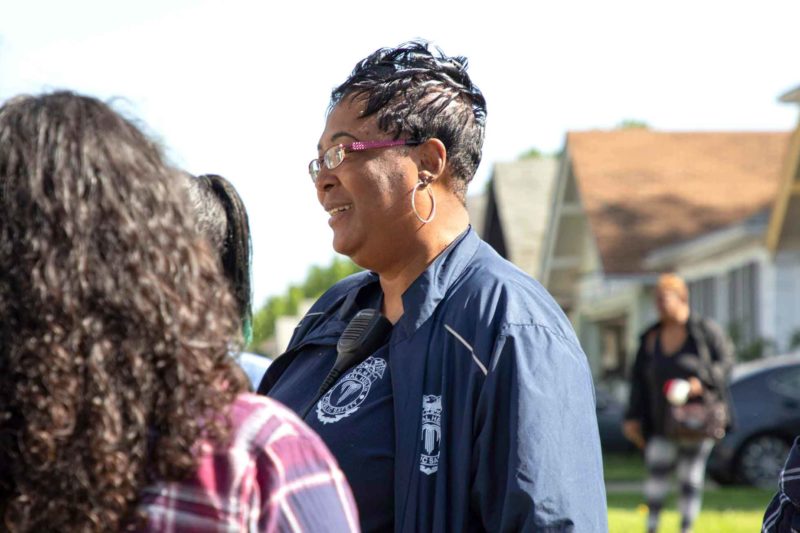
And the great thing about partnering with groups who focus on sheltering and not necessarily outreach is that they get to see the city that we see, and they get to see how we work. Our compassionate and nonjudgmental approach makes things a little different. It’s easy to go into a neighborhood like this and judge people for what they don’t have, but that’s a surface view of things, and not at all representative of the families who live there nor appreciative of the dignity of their very existence. They are human. They are our neighbors. They have pets, pets that are family. That makes them the same as us. Any other consideration is irrelevant; any other response besides compassion and understanding is unwanted.
When we go into these neighborhoods, we get to meet folks like a middle-aged gentleman who was literally feeding a stray cat when we saw him in his driveway. We talked to him for ten minutes and he had a lot to say. But it wasn’t just idle chit-chat. He told us about the cats he feeds, about neighbors that had pets that we should check on because they need help, about the history of the cats that live across the street from him in the abandoned house that was recently condemned.
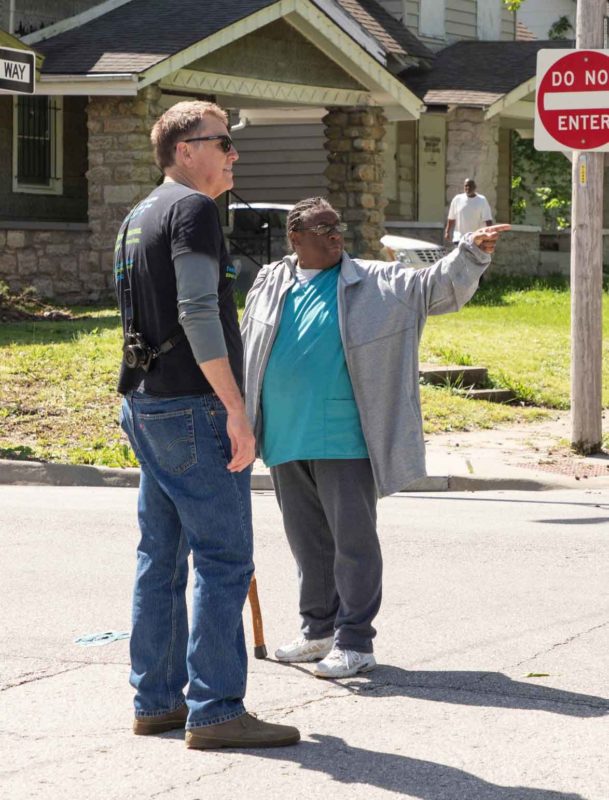
This is the kind of information that we couldn’t get from running an huge, amazing advertising campaign, even though that might reach more people in the long run. This is something that only comes from being in a neighborhood, from having a one-on-one conversation with someone. It’s the kind of information that can help us make a much bigger impact on that neighborhood’s pets, and by extension, the people they live with and the community as a whole.
We love to share that with people. And we love being out in the field with our community partners, showing them the ways in which our passion for pets manifests out in the real world, showing the community that animal control isn’t something to be feared, but rather a part of the same animal welfare community that we are, and Wayside. And that when we come together, we can focus our efforts in a way that impacts all three groups in addition to the community. More awareness of the resources available means fewer tickets being written, fewer pets being relinquished, and more families a little more secure in their circumstances. Because just like any neighborhood, any community, we make things better for all of us when we come together.

